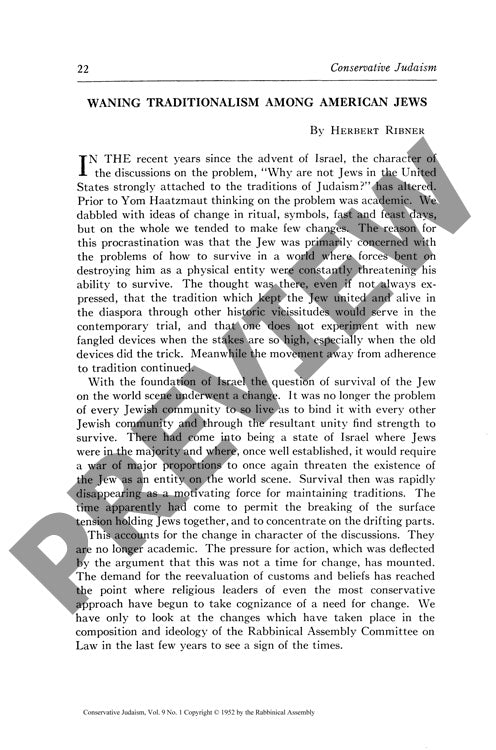Waning Traditionalism Among American Jew
Couldn't load pickup availability
Following Israel's establishment in 1948, American Jews faced an intensifying cultural tug-of-war between traditional Jewish practices and the pressures of American assimilation. Social approval mechanisms in American society consistently overrode traditional Jewish cultural patterns, leading to a marked decline in religious observance and cultural practices. Through sociological analysis of cultural assimilation patterns, this research examines the clash between American and Jewish civilizations, drawing on theories of social pressure, majority group influence, and cultural choice dynamics. The analysis traces how a unified American civilization emerged through immigration restrictions, improved transportation and communication, mass media distribution, standardized education, and World War I's nationalizing effects. Across successive generations (P1, P2, F1, F2), Jewish immigrants and their descendants progressively abandoned traditional behavioral modes in favor of American conformity to achieve social mobility and acceptance. Evidence from immigrant communities reveals that younger generations typically prevailed in intergenerational cultural conflicts, compelling parents to capitulate to American norms. Social pressure, rather than legislative or educational forces, emerged as the primary mechanism driving cultural assimilation, resulting in three typical outcomes: engagement in aberrant behaviors, complete embrace of American patterns, or attempts at cultural reconciliation. The fundamental tension between maintaining Jewish civilization and achieving American social integration ultimately underlies the erosion of traditionalism in American Jewish communities.

More Information
-
Physical Description
-
Publication Information
Published 1952
ISBN
-
Publication Credits
Herbert Ribner

